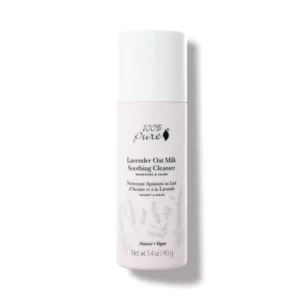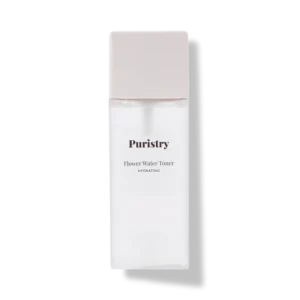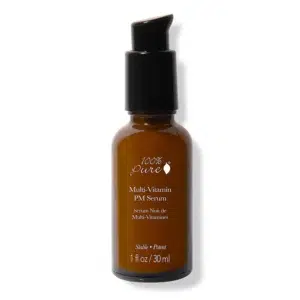The Fountain of Youth Flows Cruelty-Free

The desire for a youthful, radiant complexion shouldn’t force you to compromise your values. Thankfully, the cruelty-free skincare market for mature skin is flourishing. It offers innovative, effective products that align perfectly with your ethical stance. However, navigating this exciting world can feel overwhelming. Don’t worry, this guide will peel back the layers and explore the key factors impacting cruelty-free skincare for mature skin. We’ll consider the trade-offs and challenges to empower you to make informed choices on your cruelty-free skincare journey.
The Science Behind Effective, Gentle Formulas
Cruelty-free skincare for mature skin leverages the best science nature has to offer. Here’s the balancing act at play:
-
Powerful Ingredients Deliver Real Results: Addressing concerns like wrinkles and loss of elasticity requires potent ingredients. Plant-derived peptides mimic the effects of collagen, plumping and firming the skin. Antioxidants like vitamin C fight free radical damage, which contributes to visible signs of aging. However, these actives can sometimes be irritating on delicate mature skin.
-
Soothing Touch for Maximum Comfort: Mature skin often becomes drier and more sensitive. Harsh chemicals can exacerbate these issues. Cruelty-free brands utilize calming botanical extracts like chamomile and calendula to soothe irritation. Emollients like hyaluronic acid deeply hydrate, leaving the skin supple and comfortable. This gentle approach might mean a slower, more gradual visible improvement, but it prioritizes long-term skin health.
The Trade-off Between Effectiveness and Gentleness
The choice between potency and gentleness is a personal one. Here’s how to consider this trade-off to create a routine that’ tailored to your unique needs:
-
Understanding Your Skin Sensitivity: If you have sensitive skin, prioritize gentle formulas with calming ingredients. Look for soothing botanical extracts and fragrance-free products. Consider patch testing new products before incorporating them into your routine. Apply a small amount of the product to your inner forearm and wait 24 hours to monitor for any irritation.
-
Targeting Specific Concerns: For targeted concerns like deep wrinkles or hyperpigmentation, you might be willing to tolerate a slightly more potent formula. Look for products containing ingredients like retinol (a derivative of vitamin A) or bakuchiol (a gentler retinol alternative) to stimulate collagen production and reduce hyperpigmentation. However, consult a dermatologist if you have specific concerns that require a more aggressive approach. They can recommend products and treatment plans tailored to your unique needs.
Beyond Ingredients: Formulation Matters
Formulating effective cruelty-free skincare for mature skin goes beyond just picking powerful ingredients. Here’s what to consider for optimal results:
-
Delivery Systems: Advanced technologies like liposomes and micelles help deliver active ingredients deeper into the skin for maximum benefit. These tiny spheres encapsulate the actives, allowing them to penetrate the skin’s surface more effectively. Look for cruelty-free brands that utilize these innovative methods to ensure you reap the full benefits of the ingredients.
-
pH Balance is Crucial: Mature skin has a slightly more acidic pH than younger skin. This acidic environment helps maintain a healthy skin barrier, which protects against environmental damage and irritation. Cruelty-free skincare products formulated with a pH level that matches mature skin (around 5.5) will be more gentle and promote a healthy skin barrier.
Challenges and Considerations for the Discerning Reader
Understanding the challenges associated with cruelty-free skincare for mature skin is crucial for informed choices:
-
Limited Clinical Trials: Some cruelty-free brands, especially smaller ones, might not have extensive clinical trials on mature skin. However, look for brands with a reputation for efficacy and positive customer reviews from people with mature skin. Additionally, independent beauty blogs and websites often review cruelty-free skincare products, offering valuable insights into their effectiveness.
-
Greenwashing Concerns: Not all “natural” labels are created equal. Some brands might use misleading marketing tactics to appear more natural or cruelty-free than they truly are. Research cruelty-free certifications from reputable organizations like PETA, Leaping Bunny, or Cruelty-Free International. Additionally, independent reviews can help you identify brands that are truly committed to ethical practices.

Building Your Routine
Now that you’ve considered your skin type and lifestyle, let’s build a basic cruelty-free skincare routine for mature skin:
- Gentle Cleanser: Start your day with a gentle cleanser that removes impurities without stripping away natural oils. Look for formulas with soothing ingredients like aloe vera or chamomile.
Lavender Oat Milk Soothing Cleanser

- Hydrating Toner (Optional): A hydrating toner can help balance your skin’s pH and prep it for the next steps. This step is optional, especially for dry or sensitive skin.

- Antioxidant Serum: An antioxidant serum containing vitamin C or green tea extract can help combat free radical damage and brighten the complexion.
Multi-Vitamin + Antioxidants Potent PM Serum

Cruelty-Free Skincare FAQ: Your Questions Answered
Even after exploring the key factors impacting cruelty-free skincare for mature skin, you might still have lingering questions. Here are some frequently asked questions (FAQs) to address any remaining concerns:
- Can cruelty-free skincare be as effective as traditional brands?
Absolutely! Cruelty-free brands are constantly innovating and formulating with powerful, plant-based ingredients. While some ingredients might require a slightly longer time to show visible results, cruelty-free skincare can be just as effective, if not more gentle, on mature skin.
- What are some cruelty-free alternatives to popular skincare ingredients?
There are many effective cruelty-free alternatives to traditional skincare ingredients. Here are a few examples:
Retinol Alternative: Bakuchiol, a plant-derived ingredient, offers similar benefits to retinol (stimulates collagen production and reduces hyperpigmentation) without the potential for irritation.
Hyaluronic Acid Alternative: Sodium Polyglutamate, derived from fermented soybeans, offers similar hydrating properties to hyaluronic acid.
- Where can I find cruelty-free skincare brands?
Many online retailers specialize in cruelty-free beauty products. Additionally, some natural and organic grocery stores carry cruelty-free skincare lines. Look for brands with cruelty-free certifications displayed on their packaging or website.
- How can I switch to a cruelty-free skincare routine without disrupting my skin?
Introduce new products one at a time to allow your skin to adjust. Start with a gentle cleanser and moisturizer, then gradually add serums or treatments. Patch testing is also recommended, especially for sensitive skin.
Embrace Your Inner Radiance, the Cruelty-Free Way!
The good news? You can achieve a healthy, glowing complexion with a thoughtfully curated cruelty-free skincare routine. By understanding the trade-offs, challenges, and factors impacting this market, you can make informed choices that align with your values and deliver visible results. Remember, consistency is key! With dedication and the right products, you can embrace your natural beauty and radiate confidence, all while being kind to animals.
Bonus Tip: Look for cruelty-free subscription boxes that deliver samples of various skincare products. This allows you to experiment and find the perfect cruelty-free routine for your unique skin without committing to full-sized products.
So embark on your cruelty-free skincare journey with confidence! Remember, you deserve to look and feel your best while staying true to your ethical values.

